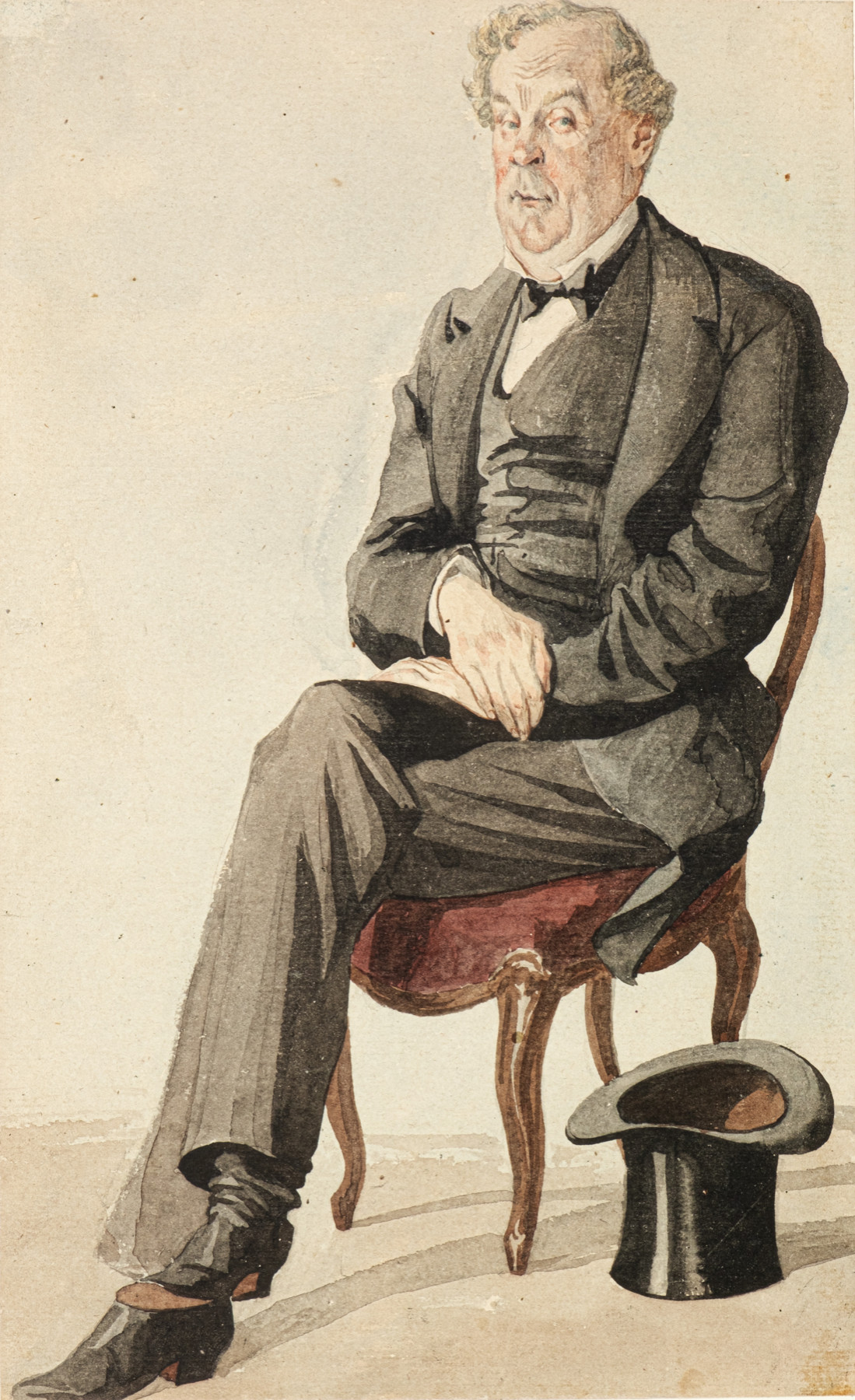
(click image to enlarge)
By early 1841 Alexander Baillie-Cochrane (1816-1890) was a leading member, with Lord John Manners and G. S. Smythe, of what Disraeli by then was calling ‘Young England’. In that summer’s general election, he stood unsuccessfully at Bridport as a Conservative, but was elected in September as a Liberal-Conservative. Between 1864 and 1868, he was joint editor and writer for The Owl, a popular satirical weekly. At the time of his caricature in Vanity Fair, he was MP for the Isle of Wight.
“Although of Scotch extraction, and a descendant of Sir William Wallace, Mr Baillie-Cochrane sits in the House of Commons as a Conservative; but being always anxious to adopt and to follow a line of his own, he is generally found professing a Conservatism removed from the kind that does every-day duty. Taking a part in most of the important debates, he may generally be reckoned upon to approach his subject from a point of view differing more or less from those hitherto occupied. An advocate of ‘judicious amelioration’ rather than of obstinate conservation, it is but a few months since that he angered his political friends by frankly announcing himself as a convert to the Ballot before they were quite ready to take the same step; and that he shocked his party by adducing among his reasons a belief in the ‘Conservative tendencies’ of the working-classes, and a desire to rescue them from the tyranny of clubs and committees. He takes, moreover, an especial interest in, and has some special acquaintance with, the foreign politics with which so few concern themselves; and he is the one Member of the House of Commons who has shown that he is aware of the treachery involved in the successful efforts made by England to rob France of her intended allies in the late war. Not being open to the imputation of aspiring to office, his opinions are always taken for what they are worth. He is alive to the charms of the fair sex; he has a presence and a delivery which never fail to win for him sympathy in his oratorical efforts; and being at no loss for extracts of prose or verse wherewith to ornament his speeches, he is suspected of cultivating society and polite literature, and of a design to say things new and true in a way that shall at once please and convince.”